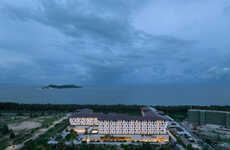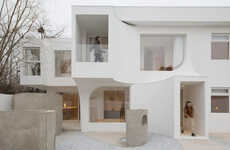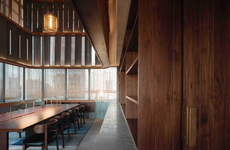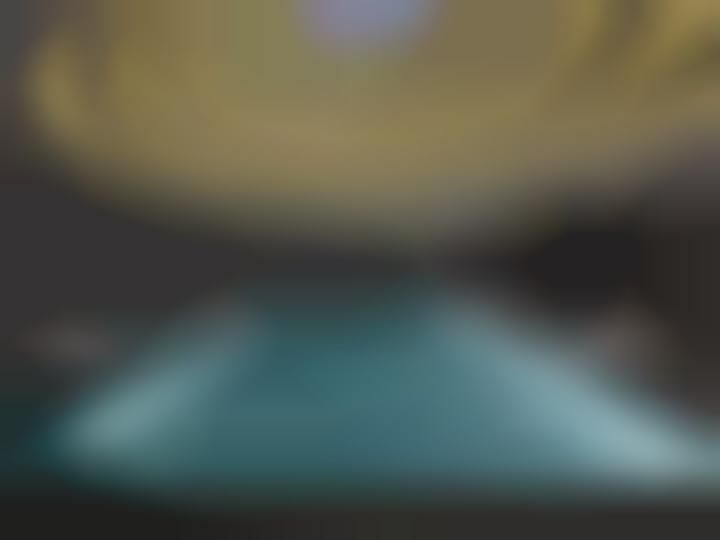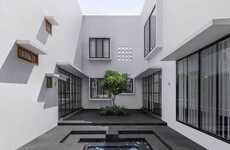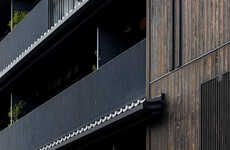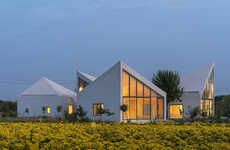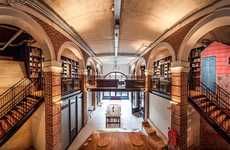
The Temple House Hotel is a Luxury Hotel in Chengdu
Rebecca Byers — August 4, 2015 — World
References: retaildesignblog.net
The Temple House Hotel is a luxury hotel located in Chengdu, a burgeoning financial city in China. Designed by Make Architects, the luxurious accommodations adhere to a traditional Siheyuan ‘courtyard house’ design and contains 100 hotel rooms and 42 fully serviced apartments.
The unique, palatial space is defined by a Qing Dynasty heritage building that serves as the initial entrance for guests, who reach the reception area and main hotel building through the heritage building's foyer. The project aimed to maintain a localized identity while creating comfort-focused accommodations that referenced the city's rich history and lush greenery.
The Temple House is the third property of Swire hotels, following the Upper House in Hong Kong and the Opposite House in Beijing.
The unique, palatial space is defined by a Qing Dynasty heritage building that serves as the initial entrance for guests, who reach the reception area and main hotel building through the heritage building's foyer. The project aimed to maintain a localized identity while creating comfort-focused accommodations that referenced the city's rich history and lush greenery.
The Temple House is the third property of Swire hotels, following the Upper House in Hong Kong and the Opposite House in Beijing.
Trend Themes
1. Upscale Courtyard House Design - Disruptive innovation opportunity: Expanding the concept of courtyard house design to create unique and luxurious accommodations in various industries such as hotels, resorts, and residential architecture.
2. Localized Identity in Luxury Accommodations - Disruptive innovation opportunity: Incorporating local cultural elements and historical references in the design of upscale accommodations, creating immersive experiences for travelers in industries like hospitality and tourism.
3. Historical Heritage Revival - Disruptive innovation opportunity: Repurposing and restoring historical buildings to serve as unique entrances or focal points for modern developments in industries such as hospitality, real estate, and urban planning.
Industry Implications
1. Hotels - Disruptive innovation opportunity: Introducing upscale luxury accommodations that combine traditional design elements with modern comfort, offering unique experiences for business and leisure travelers.
2. Residential Architecture - Disruptive innovation opportunity: Integrating the concept of courtyard house design into high-end residential projects, creating harmonious living spaces that embrace the local culture and environment.
3. Hospitality and Tourism - Disruptive innovation opportunity: Incorporating local cultural elements and historical references in luxury accommodations, attracting travelers seeking immersive and authentic experiences.
2.6
Score
Popularity
Activity
Freshness



